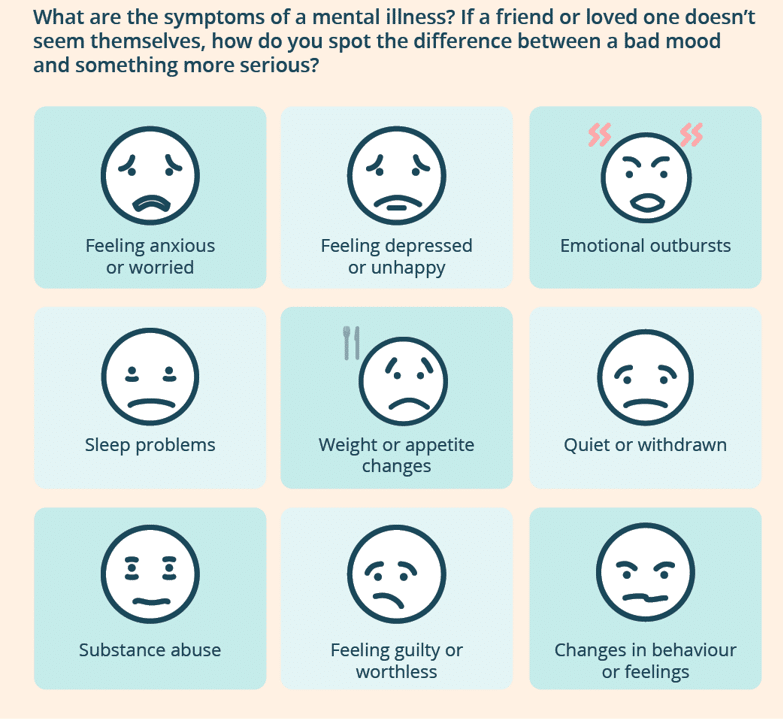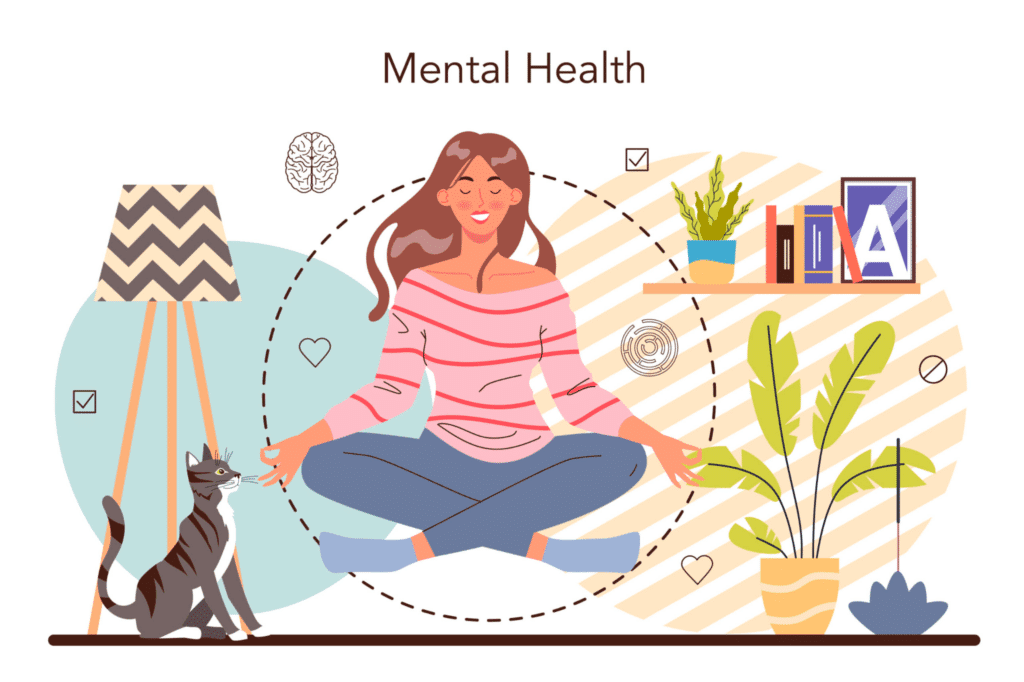Residential mental health treatment is not a new concept for those who are suffering from chronic mental health disorders. Residential mental health treatment provides constant support and encouragement to the patients, making them more popular than other treatments.
As per statistics, 1 in 5 individuals suffer from some type of mental health disorder in the United States of America. In such circumstances, the patients must choose a residential treatment for their mental health that empathizes with them rather than preach a perfect road to recovery. Poor mental health can, indeed, cripple an individual to the point of affecting their health, relationships, career, and future.
This blog has compiled information on residential mental health treatment, how it can benefit you, and what to expect in such treatment centers.
Does anxiety, depression, or trauma seem overwhelming?
What is a Residential Mental Health Treatment?

Residential mental health treatment is a type of inpatient care that specializes in treating disorders and illnesses related to an individual’s mental health. During residential treatment, experts ensure that they provide round-the-clock supervision of the patient. Moreover, certified healthcare professionals continuously monitor the patient’s vitals to ensure no adverse reactions during the treatment.
A residential mental health treatment takes place in a non-hospital setting, which helps ease the anxiety and nervousness of the patients when they commence their treatment programs. Residential treatment is beneficial for patients seeking a calm and therapeutic environment.
Studies suggest that about 30% of the adult population of the United States have sought therapy at least once in their lifetime. A residential mental health treatment can be more effective than other types of outpatient treatments because of its approach to treating the symptoms of a mental health disorder holistically.
Who can benefit from Residential Mental Health Treatment?

At the outset, a residential mental health treatment is helpful for individuals who are struggling with illnesses and disorders related to mental and emotional health. It benefits patients looking for 24-hour intensive care and monitoring in a safe and controlled environment.
As per recent studies, at least 12% of teenagers in the United States have inflicted self-injury. In such cases, families of individuals who have a history of self-harm or suicide attempt trust residential mental health treatment more than traditional outpatient treatment, as such treatment centers help patients with trauma by offering structured treatment.
A residential mental health treatment is also helpful for those individuals who have not benefited from traditional outpatient treatments like therapy and medications. Residential treatment is often the first step to recovery for those individuals who want to prevent their mental health disorders and illnesses from escalating.
Lastly, an individual who is looking for constant support and attention to avoid any nasty situations during their recovery can seek residential treatment. Residential treatment outweighs outpatient treatment because therapists and healthcare professionals understand and assess the underlying causes of their mental health disorders more closely.
What does a Residential Mental Health Treatment look like?
As discussed previously, residential mental health treatment is inpatient care offered to people struggling with disorders related to mental health. Residential treatment can include one or more types of the following treatments:
- Group therapy: The journey to recovery from mental health disorders can be a lonely one. Group therapy ensures that people suffering from the same or similar types of mental health disorders connect in a safe space and discuss their ordeals, which eventually helps build trust and confidence in the patients.
- Counseling: More often than not, individual and family counseling can help an individual identify the underlying cause of their mental health disorders. In such cases, a therapist provides a safe space for patients to discuss their feelings and challenges and explore solutions.
- Family therapy: Family can indeed make or break an individual. Sometimes, family dynamics can become challenging to manage, which can contribute to poor mental health. Family therapy can act as a bridge to help individuals mend their relationships with their family members.
- Cognitive behavioral therapy: Cognitive behavioral therapy (CBT) is a type of psychotherapy that helps individuals identify the patterns of their thoughts and behaviors to understand their impact on their everyday lives.
- Relapse prevention therapy: Relapse prevention therapy is a type of therapy that helps an individual develop skills and strategies that can help lead a sober life and prevent relapse.
A Residential mental health treatment center may use one or a combination of more than one of these therapies after assessing the mental health condition of the patients. More often than not, individuals who seek residential treatment have fewer chances of relapse because of the holistic approach of the residential mental health treatment centers.
Your Path to Recovery Begins Here
Frequently Asked Questions
1. What is resident mental health treatment?
Residential mental health treatment is a type of inpatient care that specializes in treating illnesses and disorders related to mental health. During residential treatment, there is constant support and attention on the patient to help them manage their symptoms of mental health, which makes residential mental health treatment more effective than other types of treatments.
2. What happens during a residential mental health treatment program?
During a residential mental health treatment program, a certified psychiatrist first assesses the criticality of the mental health of an individual. Depending upon the outcome of their analysis, they will then curate a program that combines therapies like counseling, cognitive behavioral therapy, relapse prevention therapy, group therapy, individual therapy, etc. During the program’s tenure, healthcare professionals keep an eye on the patient’s vitals and provide 24-hour support and attention to the patient to aid their recovery.
Who can benefit from residential mental health treatment?
Individuals who have a history of chronic mental health disorders and illnesses can benefit from residential mental health treatment. Additionally, people who have not benefited from outpatient care, like therapies and medications, can benefit from residential treatment. Lastly, people who have a history of self-harm and suicide attempts and need constant care, attention, and supervision can benefit from residential treatment.
Conclusion
Residential mental health treatment is more successful than traditional outpatient treatment for mental health disorders and illnesses. More often than not, the holistic approach of the residential treatments helps the patients in alleviating the symptoms of mental health disorders.
However, one must understand that residential treatments do not follow the concept of ‘one size fits all.’ These treatment centers curate a program that caters to the mental health disorders of a particular patient. Therefore, one must step out of one’s comfort zone to ensure successful treatment programs.









